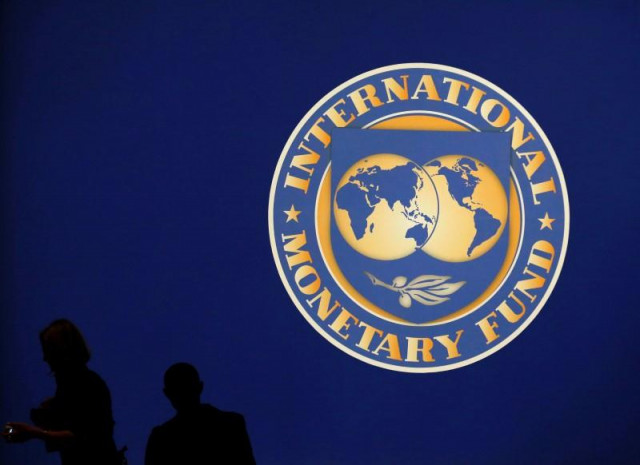IMF assistance: Talks with Pakistan focus on policy priorities, reforms
Fund says Islamabad implements its recommendation of e-GDDS

Visitors are silhouetted against the logo of the International Monetary Fund at the main venue for the IMF and World Bank annual meeting in Tokyo. PHOTO: REUTERS
IMF spokesperson Gerry Rice told a media briefing in Washington that the talks with Pakistan focused on reaching an understanding on policy priorities, reforms to stabilise the Pakistan’s economy and lay the foundations for sustainable and inclusive growth of the country.
“We've had the formal request for financial assistance, we followed up with that and the discussions continue,” Rice told reporters. “IMF staff are continuing discussions with the Pakistani authorities, with our counterparts, toward reaching an understanding on policy priorities, on reforms to stabilise the economy and lay the foundations for sustainable and inclusive growth.”
Rice’s media talk came just days before the release of IMF’s latest global economic forecast in Davos, Switzerland on Monday. Earlier this week, the IMF said that Pakistan took a positive step and has implemented the recommendations of the IMF’s Enhanced General Data Dissemination System (e-GDDS) by publishing critical data through the National Summary Data Page (NSDP).
The e-GDDS was established by the IMF in 2015 to support improved data transparency, encourage statistical development, and help create synergies between data dissemination and surveillance.
Last month, Finance Ministry sources had told The Express Tribune that Pakistan had shared fiscal and monetary proposals as part of a memorandum of economic and financial policies for securing the bailout package.
The plan included over Rs300 billion anticipated earnings from sale of two government-owned LNG-fired power plants. Pakistan also offered to impose Rs190 billion additional taxes to restrict budget deficit to Rs2.2 trillion, increase interest rates and devalue currency to boost foreign exchange reserves to $13 billion.
The sources had said that the government had given an overarching assurance to the IMF that Pakistan would make adjustments in fiscal policies, tighten import regime and a monetary policy would primarily aimed at targeting inflation.
They had added that against a free float demand by the IMF, the SBP had proposed to pursue a flexible exchange rate policy. It had also assured the IMF that in the future the central bank would target only inflation and the economic growth rate would not be a major consideration.



















COMMENTS
Comments are moderated and generally will be posted if they are on-topic and not abusive.
For more information, please see our Comments FAQ